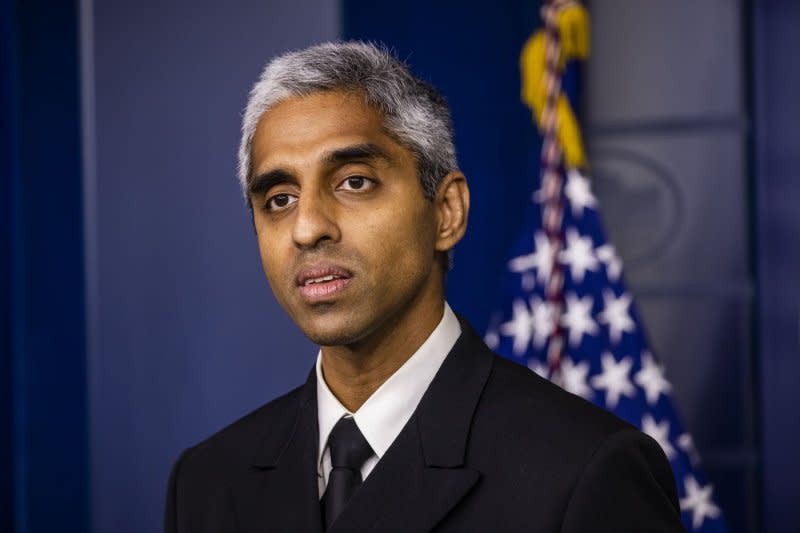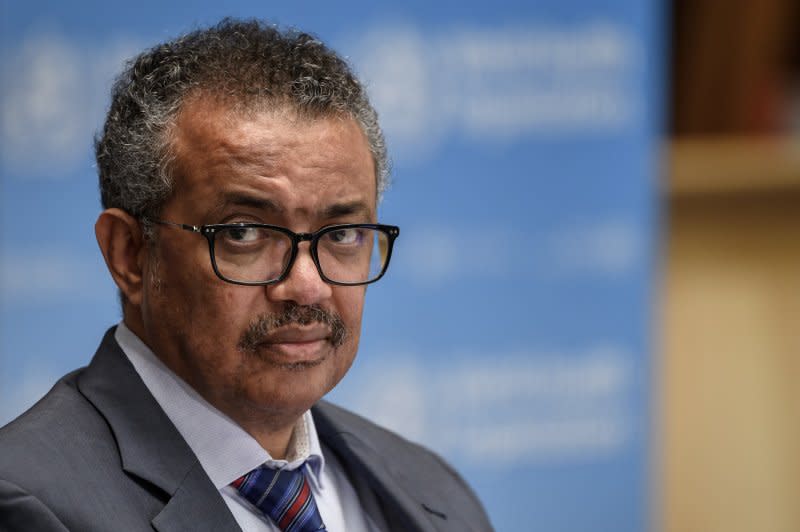World Health Organization launches commission to combat loneliness, social isolation

- Oops!Something went wrong.Please try again later.
- Oops!Something went wrong.Please try again later.
Nov. 16 (UPI) -- The World Health Organization on Thursday announced the launch of a three-year global initiative to combat loneliness as an urgent health issue, while creating a commission aimed at promoting social connectivity in communities around the world.
The Commission on Social Connection, co-chaired by U.S. Surgeon General Vivek Murthy and comprised of nearly a dozen prominent advocates and policymakers from several nations, will analyze high-risk areas of social isolation worldwide, while fostering a sense of community and inclusiveness among those on the fringes of mainstream life, with the goal of improving overall health and wellbeing.
"I am thrilled to work closely with an outstanding group of commissioners on advancing social connection -- a vital component of well-being," Murthy said in a statement. "Together, we can build a world that is less lonely, healthier, and more resilient."
The commission will gather on Dec. 6-8 for its first meeting, while it plans to release a comprehensive report on global loneliness in summer 2025, at the halfway point of its mission.
In its work, the commission will attempt to shape global policy on social disconnection issues, while fostering awareness and partnerships to advance new mental health solutions for those experiencing loneliness.

"The commission will consider how connection enhances the well-being of our communities and societies and helps foster economic progress, social development, and innovation," the WHO said in a statement announcing the international effort.
Social isolation, characterized by a lack of sufficient social connections, and loneliness, the emotional distress of feeling disconnected from others, both underscore the pervasive challenges confronting the commission as it attempts to tackle an escalating global concern.
The issues are often associated with older individuals in wealthy countries, but isolation and loneliness impact the health and wellbeing of people across all age groups, the WHO said.
The lack of social connection rivals or exceeds many well-known risk factors for early death, including smoking, excessive drinking, physical inactivity, obesity, and air pollution.
In May, Murthy issued an advisory on loneliness in the wake of the global pandemic, urging Americans to break free from the isolation of the years that followed the onset of the COVID-19 pandemic and rediscover the "healing power" of relationships.
"Given the profound health and societal consequences of loneliness and isolation, we have an obligation to make the same investments in rebuilding the social fabric of society that we have made in addressing other global health concerns, such as tobacco use, obesity, and the addiction crisis," Murthy said.
Studies have continued to highlight a significant impact of loneliness on mental health, correlating with anxiety and depression and a 30% increased risk of cardiovascular disease.
Research also finds that social isolation affects about 1 in 4 elderly individuals worldwide, while as many as 15% of young people experience loneliness across all regions, WHO said, adding that these figures were likely conservative estimates.
At the same time, social isolation has been shown to impact education outcomes, with high school students experiencing loneliness being more prone to drop out and go on to feel a general lack of support both at home and in the workplace, the WHO said.
WHO Director-General Dr Tedros Adhanom Ghebreyesus said the new commission will help establish social connections as a major global health priority in an effort to mitigate these concerns.
"High rates of social isolation and loneliness around the world have serious consequences for health and wellbeing," Ghebreyesus said. "People without enough strong social connections are at higher risk of stroke, anxiety, dementia, depression, suicide and more."

